This year, Wichita is blowing out 155 candles, and we’re inviting everyone, locals and visitors alike, to celebrate the pioneering spirit that built the Air Capital of the World. Our 155th birthday is the perfect moment to remember what makes Wichita special, and to keep dreaming bigger for the next generation.
From our Wild West roots as a bustling Cowtown to our status as a global aviation hub, Wichita’s story has always been about resilience, big ideas and the bold people who make them happen. It’s a reminder that every Wichitan helps write this story every day, and is an open invitation for visitors to experience it for themselves via our museums, local shops, festivals, restaurants and the friendly faces you’ll meet along the way.
Long before we were called Wichita, this region was a gathering place for thousands of years. In 1863, the first permanent settlement of Wichita Indians was recorded. Not long after, J.R. Mead arrived, opened a trading post, and made this spot a key stop on the legendary Chisholm Trail. Fast forward to today, and Wichita is Kansas’ largest city. It is home to a proud blend of aviation and western heritage, thriving arts and culture, innovative entrepreneurs and endless places to dine, shop and play.
As we mark 155 years of Wichita pride, we invite you to take a look back at the moments that shaped us — and join us in sharing your love for the Heart of the Country. Share why you love Wichita on social media and use #ILoveWichita so the who world can see why our city is so special!
A bit of history
1863 – First permanent settlement of Wichita Indians recorded. James R. Mead first came to the area with the first noted African American to the area, known only in history as Buckner.
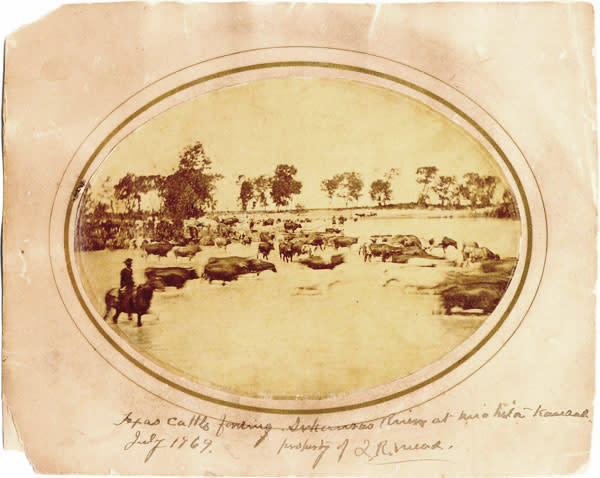
Credit: Wichita State University Libraries
1868 – J.R. Mead opened a trading post and established the area as a base for the Chisholm Trail.
1870 – Wichita was incorporated as a city and became known as ‘Cowtown’ for its cattle drives. The only woman to sign the incorporation document was Catherine McCarty, whose son would go on to infamy under the moniker “Billy the Kid.” One African American man, Richard Robinson, also signed the document.
1872 – The Wichita Eagle and The Wichita Daily Beacon newspapers begin publication.
1874-1876 – Wyatt Earp, the legendary lawman of Dodge City and Tombstone, served as Wichita city policeman off and on between these years. When it came to settling disputes, Earp preferred words to gunplay during his years in Wichita.
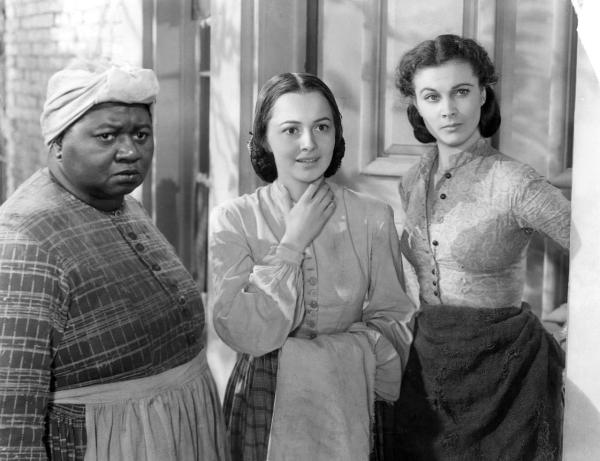
1893 – Hattie McDaniel, the first African American actress to win an Oscar, was born in Wichita.
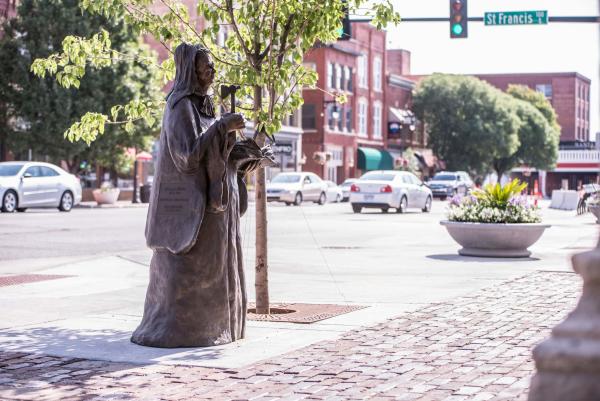
Credit: Wichita State University Libraries
1900 – Temperance activist Carry Nation smashes the Hotel Carey saloon in downtown Wichita.
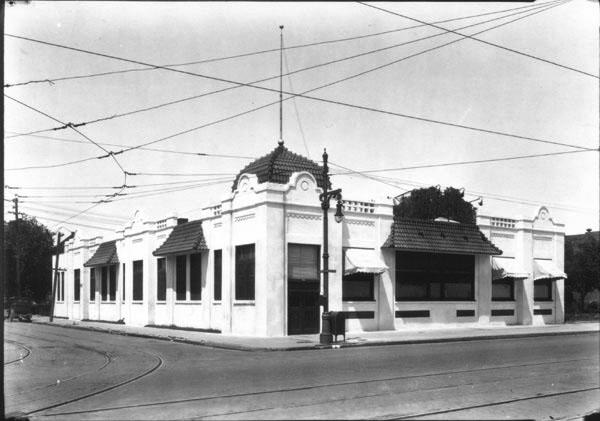
Credit: Edgar B. Smith, Wichita Public Library
1910s – Founded in the 1890s, A.A. Hyde’s Salve Mentholatum Company constructed its headquarters in the 1910s in Wichita. Today it houses The Spice Merchant & Co.
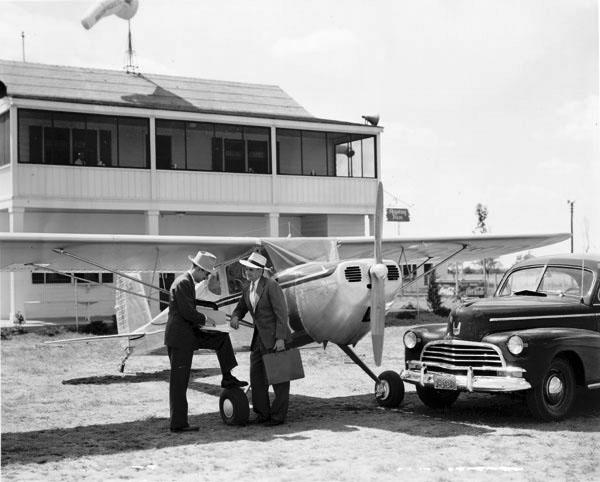
Credit: Wichita State University Libraries
1916 – Clyde Cessna signed a contract to start manufacturing planes in Kansas. Since this time, the Wichita area has pioneered aviation and manufacturing.
1918 – Oil reserves were discovered and the population nearly doubled. Entrepreneurs began investing in the aviation industry.
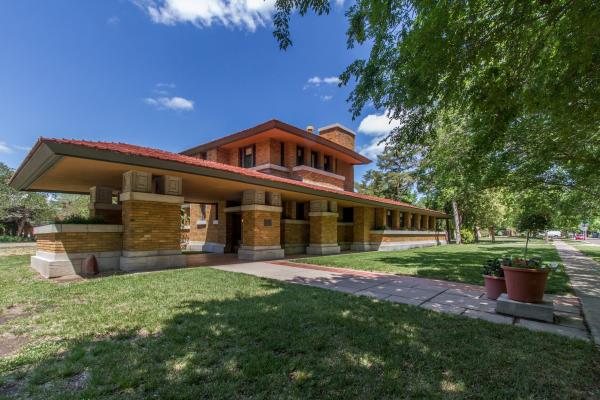
1918 – The Frank Lloyd Wright Allen House was completed in 1918 for newspaper publisher Henry Allen, who went on to become governor of Kansas and a U.S. senator. Now, the house operates as a museum to showcase an important Wright prairie house.
1921 – The country’s first White Castle begins operations in Wichita.
1935 – The city’s first airport, Wichita Municipal – ICT, was dedicated on March 31 and an upper control tower was added in 1941. Mary VanScyoc was the nation’s first female air traffic control operator, who began working in the tower in 1944.
1937 – Gage Brewer and his brother Charles opened a club that became a Wichita institution, “Shadowland.” One of Brewer’s major contributions to the regional music scene in the early 1930s was introducing and promoting the electric guitar.
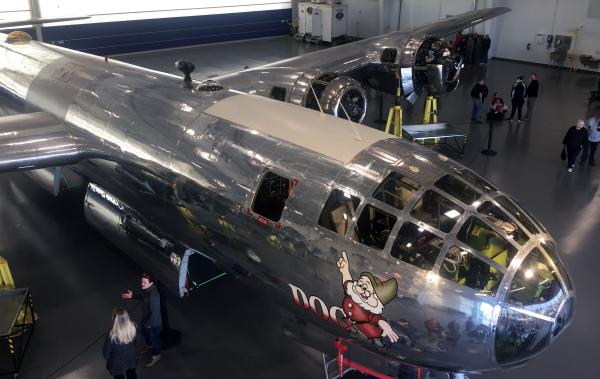
Credit: MeLinda Schnyder
1940s – Already known as the Air Capital of the World, producing 67 percent of the U.S. general aviation aircraft, Wichita became a major manufacturing center for thousands of B-29s, including Doc, which has a permanent home at the B-29 Doc Hangar & Education Center. Wichita was a destination for nearly every aviation luminary of the times. Charles Lindbergh, Kansas’ own Amelia Earhart and many other celebrities flew into Wichita Municipal. It has been told that Fred Astaire once entertained fellow passengers by dancing in the airport’s beautiful atrium while awaiting a flight.
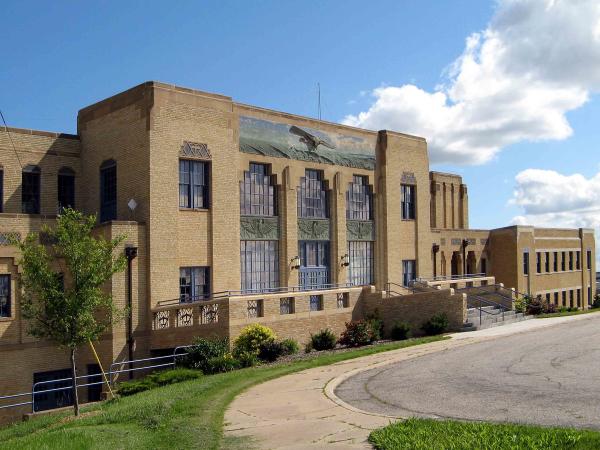
1944 – In its heyday, Wichita’s first airport – now the Kansas Aviation Museum – was one of the busiest airports in the nation with a take-off or landing occurred every 90 seconds.
1958 – Wichita’s entrepreneurial spirit continued with created of businesses such as Pizza Hut. The original building, now The Original Pizza Hut Museum, is open to visitors and sits on Wichita State University’s campus.
1958 – Two dozen students from Wichita staged what would become the first successful student-led lunch counter sit-in of the Civil Rights movement at the Dockum Drug Store.
1965 – Wichita State University’s men’s basketball team reached the Final Four of the NCAA Tournament for the first time. A year earlier, in 1964, the university was established. The Shockers have made 14 appearances in the tournament, reaching the Final Four twice, the Elite 8 four times and the Sweet Sixteen six times.
1972 – The first festival organized by Wichita Festivals was held in Wichita along the Arkansas River and was two days long. In 1974 the name of the festival was changed to Wichita River Festival (Riverfest for short) and it was extended to 10 days in length.
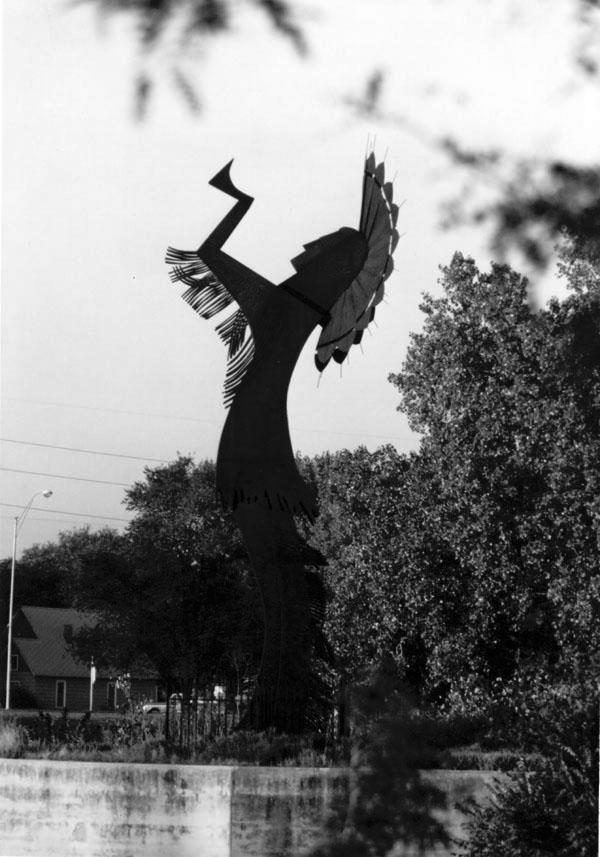
Credit: Wichita State University Library
1974 – Keeper of the Plains was erected. A $20 million restoration and beautification was completed in 2007.
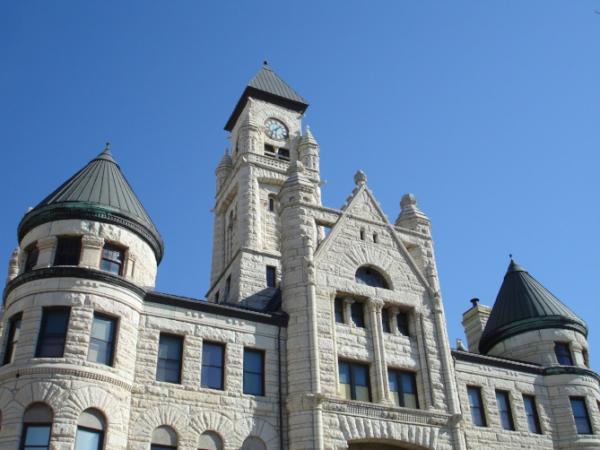
1981 – The Wichita-Sedgwick County Historical Museum begins operations out of the city’s original city hall building in downtown Wichita.
Recent times
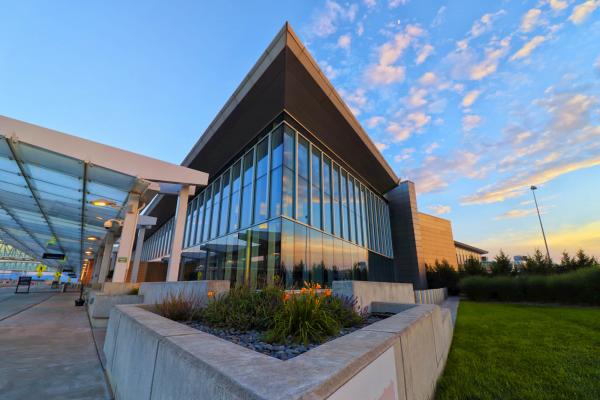
2015 – Wichita’s new airport terminal opened and the airport officially changed its name to Wichita Dwight D. Eisenhower National Airport.
2016 – After years of restoration by dedicated volunteers, Wichita’s historic B-29 Superfortress “Doc” completed its first flight since 1956, strengthening Wichita’s identity as the Air Capital and drawing aviation enthusiasts from around the world.
2017 – Spirit AeroSystems, one of the world’s largest non-OEM aircraft parts manufacturers, announced a major expansion of its Wichita operations, reinforcing the city’s role as a global leader in aerospace manufacturing.
2017 – Textron Aviation, home to Cessna and Beechcraft, announced major investments to expand production of business jets and turboprops, reinforcing Wichita’s leadership as the world’s general aviation capital.
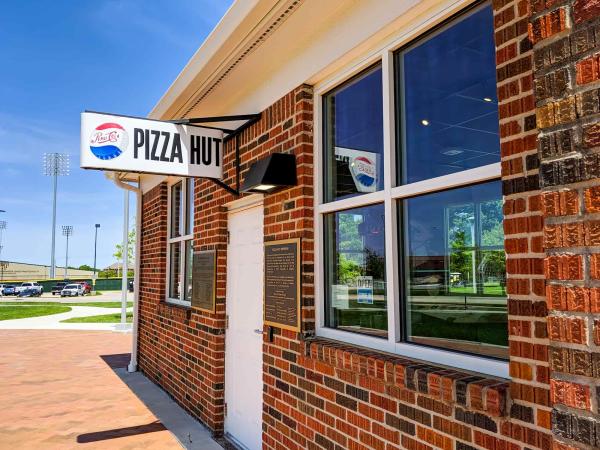
2018 – The Original Pizza Hut Museum opens. The tiny building where Pizza Hut was founded in 1958 was moved to the Wichita State University campus and reopened as The Original Pizza Hut Museum, celebrating Wichita’s entrepreneurial legacy.
2019 – Cargill, a major player in Kansas’ agriculture and food processing industry, opened its new North American Protein headquarters in downtown Wichita, keeping 800 jobs in the city and showcasing its continued commitment to the region’s agricultural roots.
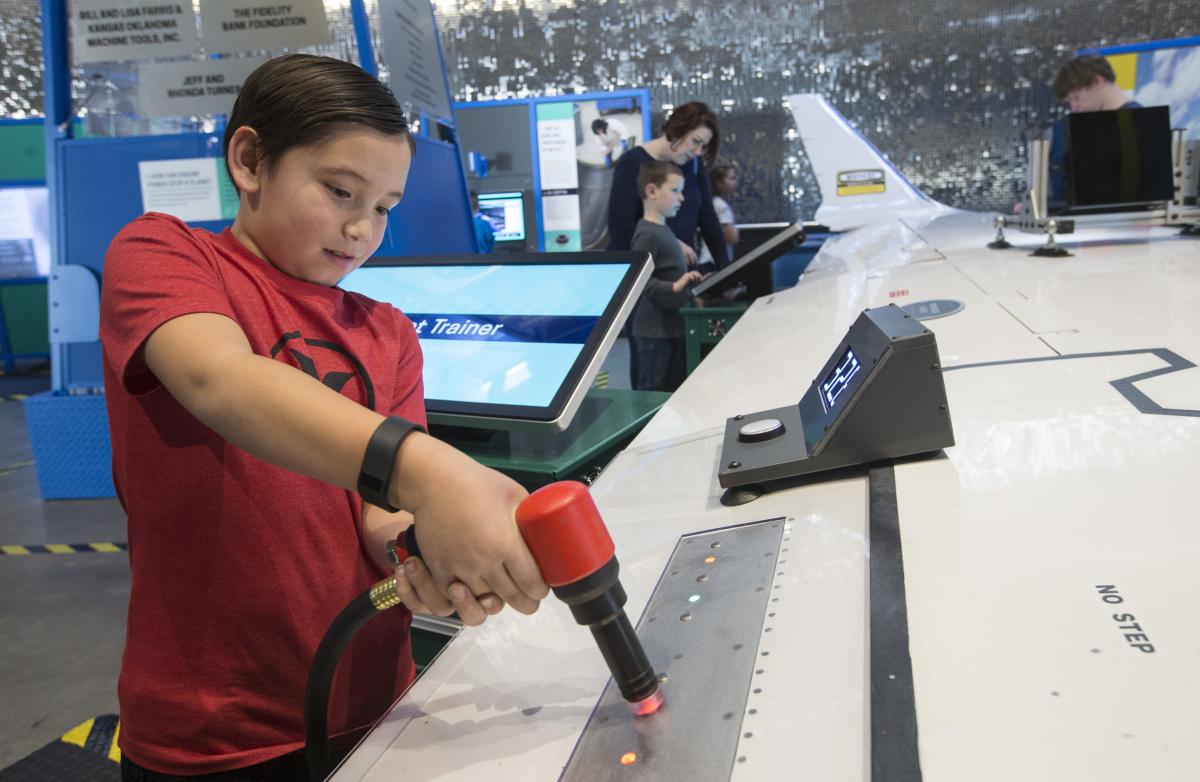
2021 – Exploration Place debuted its interactive aviation exhibit “Design, Build, Fly,” reinforcing Wichita’s aviation heritage by inspiring young visitors to learn about aircraft design and aerodynamics.
2021 – WSU’s National Institute for Aviation Research (NIAR), one of the nation’s top aviation research institutions, expanded its advanced manufacturing and materials testing capabilities, supporting the next generation of aircraft design, composites, and digital twin technology.
2022 – The B-29 Doc Hangar & Education Center completed upgrades to expand its educational mission, allowing more visitors to experience the restored bomber and learn about Wichita’s critical role in WWII aviation.
2022 – The Sedgwick County Zoo celebrates its 50th anniversary. The zoo is one of Kansas’ top attractions and a community anchor for education and conservation, drawing families, field trips and visitors who often connect their visits with Wichita’s wider cultural scene.
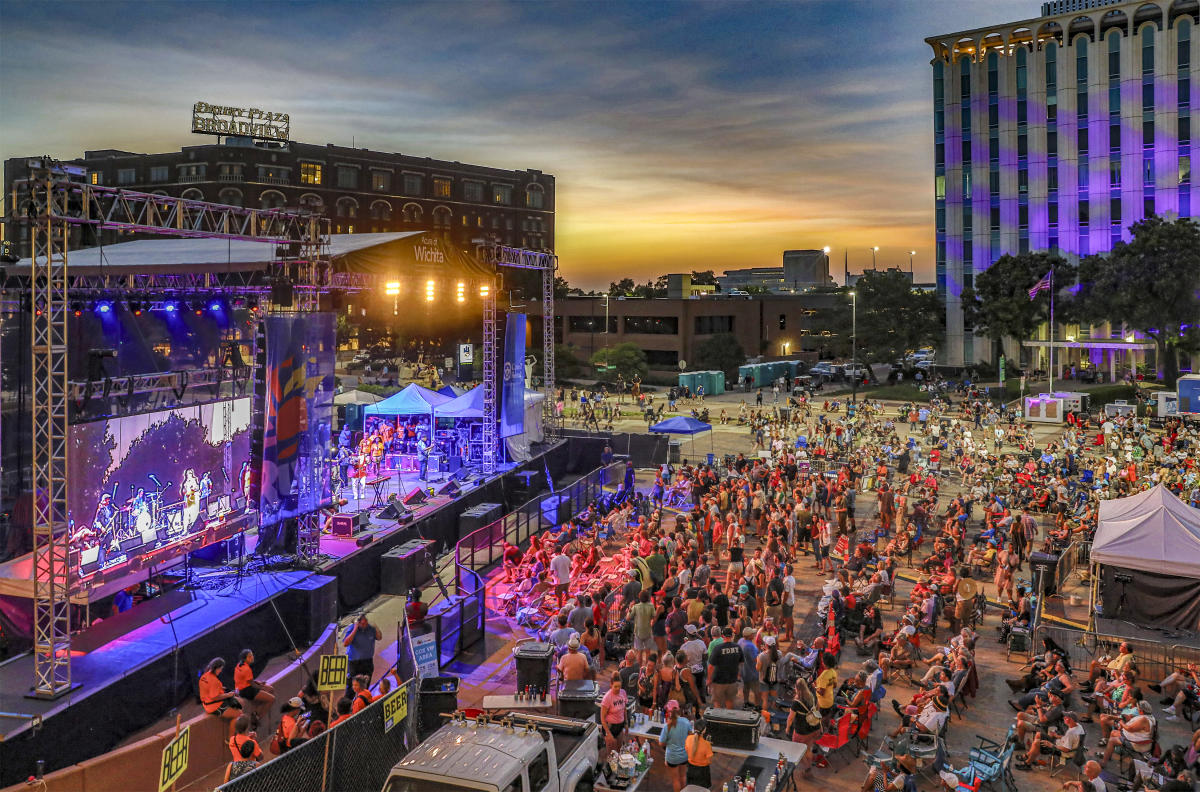
2023 – Riverfest, Wichita’s beloved festival first organized in 1972, celebrated its 50th anniversary — highlighting decades of community pride, riverfront fun, and cultural performances.
2025 – The city is set to host the National Aviation Hall of Fame Enshrinement event, bringing the national spotlight to Wichita’s enduring status as the Air Capital of the World.
(Except for the headline, this story has not been edited by PostX News and is published from a syndicated feed.)

